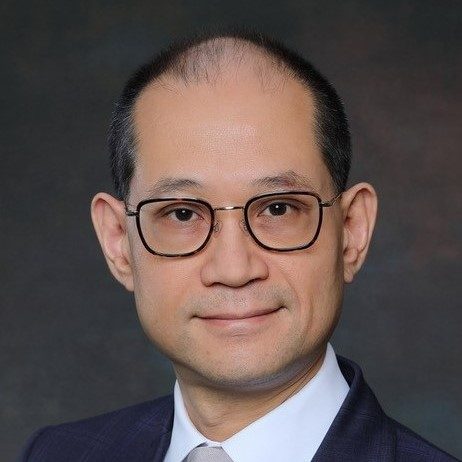The pandemic closed borders across the world, curbing travel and limiting face-to-face connections. This presented a major challenge for Hong Kong, one of the most connected cities in the world, which thrives in its role as a connector.
But throughout the pandemic, Hong Kong did not stop innovating. And now that pandemic restrictions have been relaxed, the city is on a renewed push to show that it still has what it takes to compete at the highest level of finance.

❝ Hong Kong has a bright future, with its role as a connector to China’s onshore markets, the strong IPO pipeline and a broadening range of products, all set to cement the city’s status as a major international financial centre. ❞
Not only was Hong Kong the host city for the BNP Paribas Global Markets APAC Conference 2023, but it was also the subject of a panel discussion – featuring two of the most prominent figures in the local financial ecosystem – moderated by Hugo Leung, CEO, BNP Paribas, Hong Kong Branch.
“Hong Kong has a bright future, with its role as a connector to China’s onshore markets, the strong IPO pipeline and a broadening range of products, all set to cement the city’s status as a major international financial centre,” he said.
Enhanced connectivity
One of Hong Kong’s main strengths is its stock market – it is the world’s seventh largest exchange by market capitalisation and has ranked first as an IPO venue for seven of the last 13 years. As an integral part of the city’s market infrastructure, the exchange acts as a key channel to China’s onshore markets, via the Connect programmes that link it to markets in Shanghai and Shenzhen.
In 2022, the flagship Stock Connect received a major upgrade, with the addition of ETFs to the list of tradeable securities. International investors can invest in a passive product to gain broad exposure to the A-share market, while investors in mainland China can access Hong Kong-listed ETFs, with products that include Chinese technology companies proving popular.
More recently, there was a significant expansion to the number of eligible stocks available on both the Northbound and Southbound channels of Stock Connect. In addition to the quantitative change, there was also an important qualitative development – the potential eligibility of shares in international companies with a primary listing in Hong Kong to be included on the Southbound. This is a significant milestone because it allows international companies to tap into enormous amounts of liquidity in China’s onshore market.
Expanding into new territory
Beyond its stock market, the panellists discussed how Hong Kong has growing strengths in other asset classes. On the fixed income side, there is Bond Connect, which is a channel into China’s onshore bond market. The recently launched Swap Connect acts as a complement to Bond Connect, by allowing offshore investors to trade onshore interest rate swaps – boosting Hong Kong’s status as a centre for risk management.
Tackling climate change is also a priority for Hong Kong, as the city is well-placed to channel global capital in mainland China that will fund the country’s energy transition. Helping to set and adhere to the evolving international standards for sustainable investment. Hong Kong Exchanges and Clearing (HKEX) has also launched Core Climate, a voluntary carbon market that covers trading, custody and settlement.
Looking to the future, panellists commented Hong Kong is a pioneer in regulating the trade of virtual assets, with the aim of imposing rules that protect investors and support financial stability, while at the same time encouraging innovation and the development of the ecosystem.
A licensing system for virtual asset service providers came into effect in June, with the government showing its commitment to new forms of issuance, as it successfully offered the first tokenised green bond issued by a government globally.
Overall, the panel highlighted how this forward-looking and open attitude promises to put Hong Kong on track for its next generation of financial development.
“I am confident that Hong Kong’s financial markets will continue to be successful in the increasingly challenging post-pandemic environment,” Leung said.
